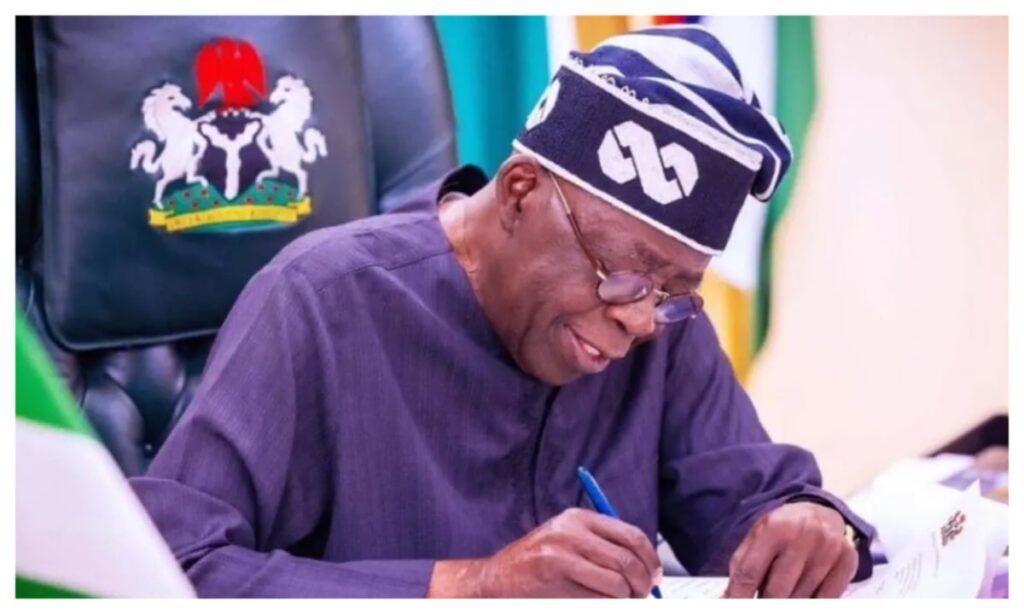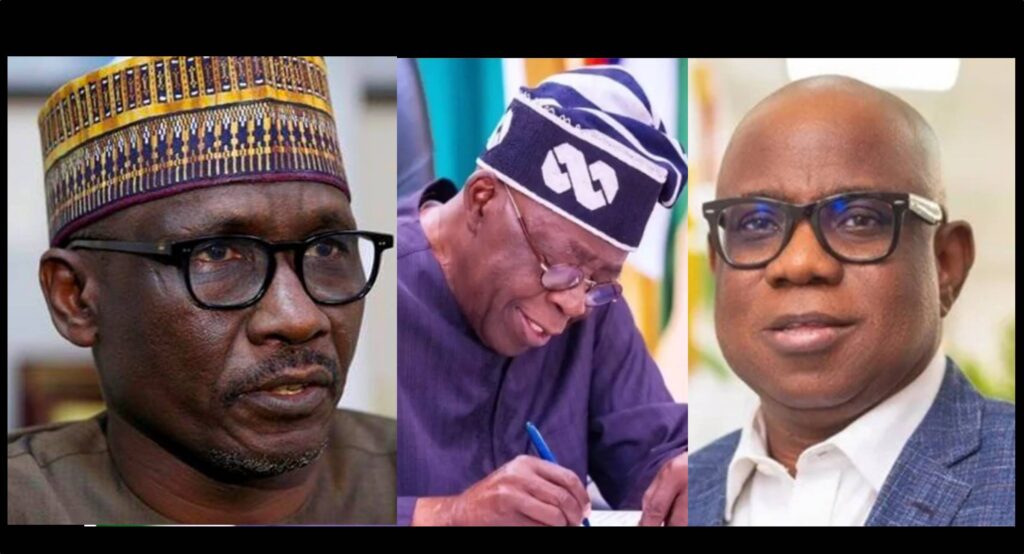GistNexus – April 14, 2025.
It is a turn of events as a United States District Court sitting in Columbia directed the Federal Bureau of Investigation (FBI) and the Drug Enforcement Administration (DEA) to unseal records of their past criminal investigations of the President of Nigeria, Bola Tinubu, for suspected drug trafficking activities he engaged in in the 1990s.

Court Ruling Explanation
April 8, 2025, witnessed Judge Beryl Howell directing the FBI and DEA to search for and process non-exempt records in response to Freedom of Information Act (FOIA) requests filed by American researcher Aaron Greenspan. Greenspan, the founder of the legal transparency website PlainSite, had made 12 FOIA requests in 2022 and 2023 for details regarding a Chicago drug ring during the early 1990s that involved President Tinubu and others such as persons Lee Andrew Edwards, Mueez Abegboyega Akande, and Abiodun Agbele.
Read Related News
Previously, both the FBI and DEA had responded with “Glomar replies,” neither affirming nor denying the existence of the sought-after records. These responses were determined by Judge Howell to be inapplicable within this instance, ruling that a public interest in disclosure outweighed any privacy requirements. The agencies are now being required to reveal non-exempt materials and respond to the state of the case by May 2, 2025.
Presidency’s Response
The Nigerian presidency has dismissed the court judgment, stating that the information at stake is dated and was rendered public over three decades ago. Bayo Onanuga, President’s Special Adviser on Information and Strategy, stated that the reports do not touch on President Tinubu and his legal team is reviewing the ruling of the court.
Onanuga further noted that attempts by some political leaders to leverage the action of the U.S. court for local political capital have not been fruitful. He referred to such attempts as part of an ongoing pattern of abortive attempts to traduce the president.
Historical Context
In 1993, President Tinubu had been involved in a settlement by law where he lost $460,000 to the U.S. government allegedly earned from narcotic trafficking proceeds. This incidence has been on controversy among the general public, especially in the course of elections. Irrespective of that, it has to be noted that Tinubu was never publicly convicted by U.S. officials, and he went back to Nigeria, subsequently gaining top political positions, including serving as the Governor of Lagos State from 1999 to 2007.
The court order has elicited contrasting reactions among Nigeria’s politics. Members of the opposition have hopped on the development, calling for further inquiries and accountability. They argue that opening up of the records has the capacity to reveal the president’s past and help in governance.
Read Related News
To the contrary, President Tinubu’s supporters view the move of the court as a senseless attempt to tarnish his reputation. The contention is that the information was stale and was previously addressed, suggesting the new highlighting is politically motivated.
Legal Perspectives
Legal commentators are watching closely, pointing out that the court’s ruling to force the disclosure of the records highlights the value of transparency and the right of the public to information. They point out that while privacy issues are legitimate, they have to be weighed against the public interest, particularly where dealing with public figures and issues of national significance.
International Implications
The U.S. court’s ruling also has far-reaching implications internationally, especially relating to Nigeria’s bilateral relations with America. It questions the management of sensitive information and how far foreign governments can go in accessing and divulging such information. The two countries might be required to negotiate through diplomatic means as they tackle the effects of the court decision and its implications for bilateral ties.
Future Developments
As the FBI and DEA prepare to release the records ordered, attention is on the documents’ content and its potential effect on President Tinubu’s political fortunes. The impending disclosure may influence public opinion, affect political players, and welcome further legal and political games.
The ongoing consideration by the Nigerian presidency of the court’s ruling will likely shape the government’s response and strategy in addressing the issue. Stakeholders across both sides of the political divide are eagerly awaiting the release of the records and any subsequent action that may arise from this historic legal development.
GistNexus will continue to track and report on this unfolding story as more details become available.
Read Related News

Reported by GistNexus Team and Edited by Mr. Chibueze Onwuka


